Bread and Roses: Understanding What a Union Will Bring
Joe Hill #labor #union
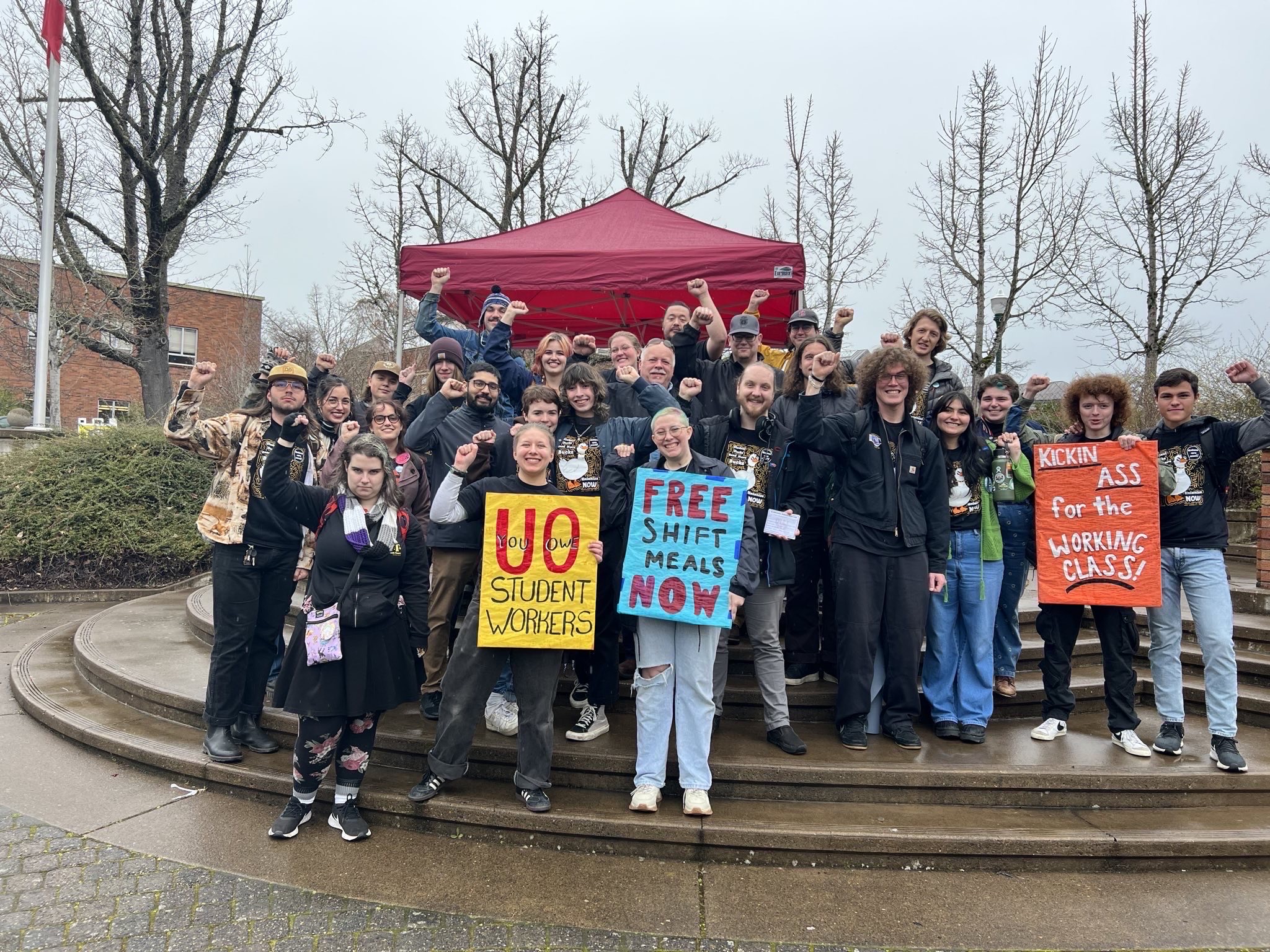
The clock has nearly struck midnight, and the fate of student workers within the University of Oregon will soon be decided. Either we will have a union, or we will not. As the deadline to collect signed union cards approaches, the University of Oregon Student Workers has buckled down for the final stretch of the race. During this critical time, we ought to understand the implications of both our victory and defeat within this struggle.
The results of defeat are obvious: things will continue as they are. Student workers will continue to be paid pocket change while our bosses gorge themselves on the extortionately inflated prices they set. Vulnerable comrades will continue to be abused and harassed by their managers who by all rights should have been swiftly removed from their positions. Our pay will continue to arrive lazily while most of us live paycheck to paycheck. Shift meals, which were once free for us, will continue to eat into what little pay we get. Our latent power will continue to be suppressed, and our status as the invisible pack mules of this university will solidify.
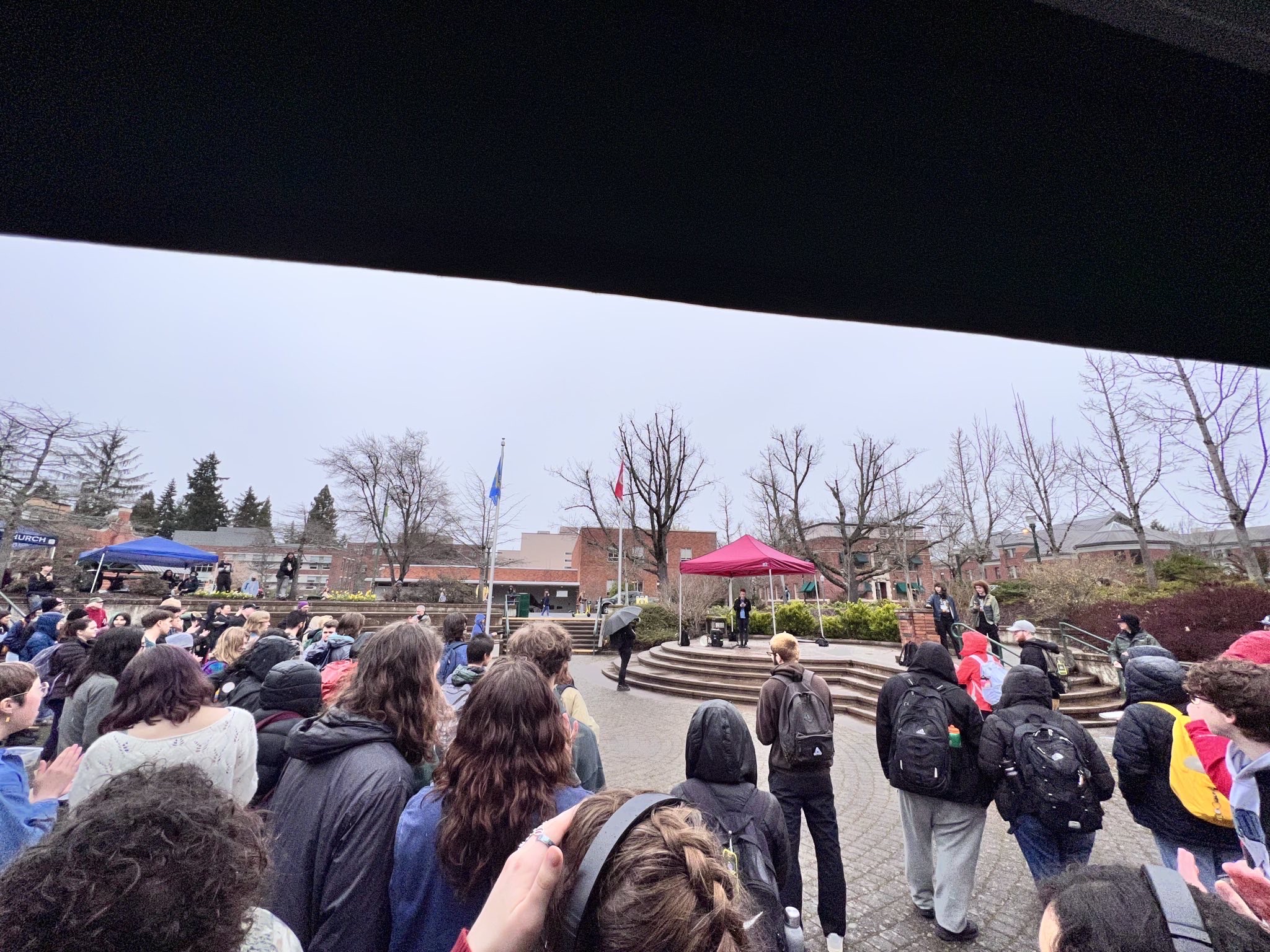
This would be the bitter result of our defeat, a result none of us wish nor deserve. However, it is not the path we are destined to follow. Through the heroic efforts undertaken by the organizers of the UOSW, we stand upon the precipice of unionization. Currently they have over 1700 union cards signed, with under 400 to go before they have over half of the student workers as signatories - the prerequisite legally required to form a union. Over the past few weeks, they have seen an explosive growth in the number of signatories and the pace is only getting faster. While victory is not yet guaranteed, it is safe to say that it is that the likely outcome will favor us. In this case, we must look towards the future: what would a union bring us?
To answer this question and a few others, I interviewed Will Garrahan, a prominent organizer for the UOSW who was recently fired by the university. He laid out the situation plainly: Currently, the student workers of the University of Oregon face a number of abuses at the hands of our bosses. We are paid too little, we are paid too infrequently, we are harassed by our superiors (who face few consequences for this harassment), what little we do make is taken away from us by high tuition fees, shift meals, and the overpriced rent of tombs someone erroneously called “dorm rooms.” While there are certainly more grievances than this, these are the principal issues faced by the majority of student workers.
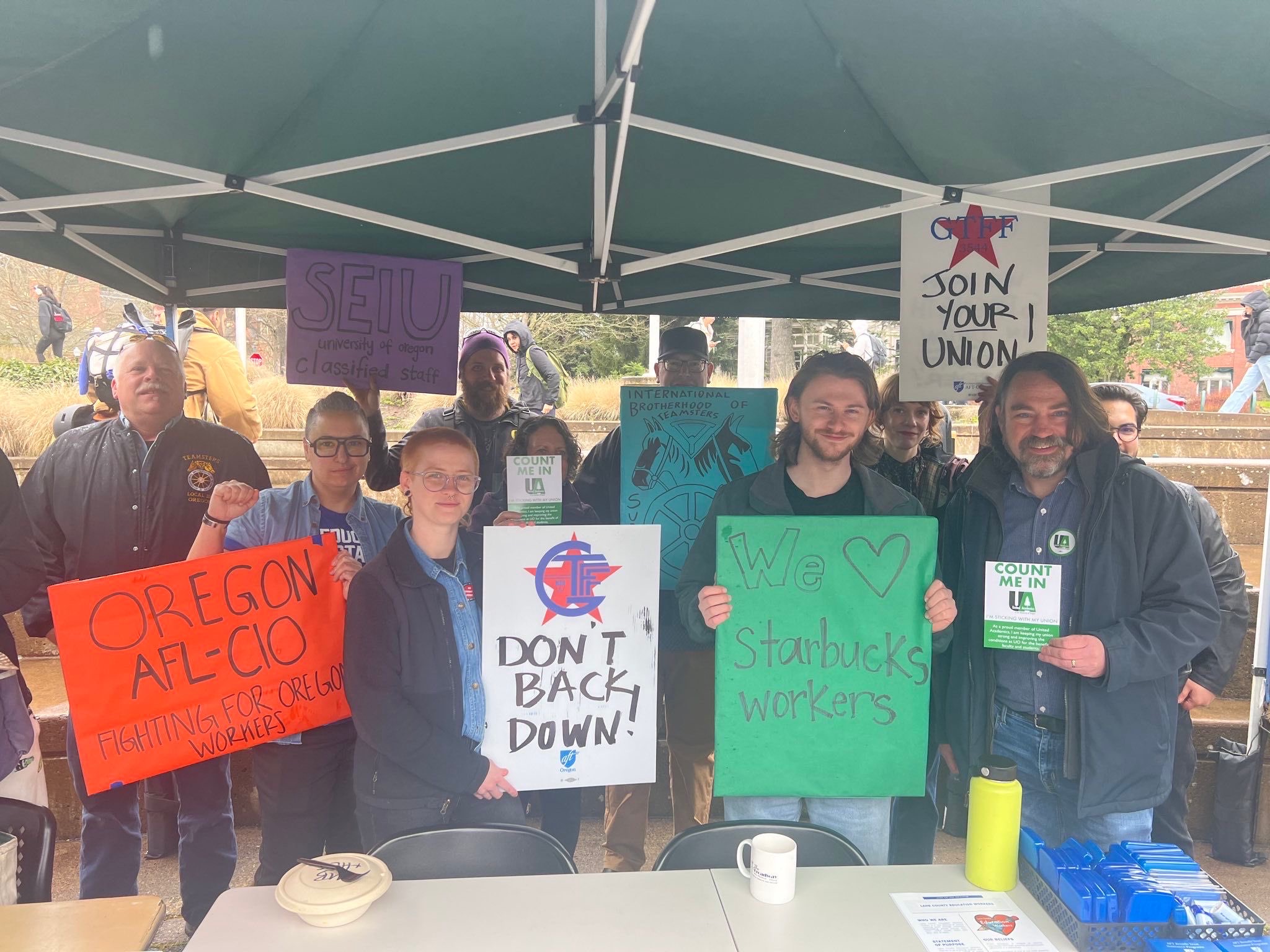
Many of these issues have gone unresolved for years and are only getting worse with time. The only way for us to right these wrongs is to organize into a body which poses a real threat to the powers-that-be in this university. A student workers union, with the ability and willingness to strike or engage in other actions hostile to the corporate overlords of this college, is the only tool we have to force these issues. A union is the only way we are ever getting paid biweekly and more than 15 dollars to the hour, the only way we will ever regain our free shift meals—a benefit student workers enjoyed in the past, and the only way that we will gain protection from abusive managers who still consider themselves free to harass and demean us.
However, a union means more than just the realization of our rights as workers. It also is the vehicle through which we may democratize our workplace and make working as a student worker meaningful. Will emphasized this point in our interview, outlining how our workplace democracy will function. We would have committees of workers in every workplace, with elected stewards representing their workers in a steward’s council. These stewards would remain closely and personally involved in their workplaces. This would ensure that we have a body both with the coordinating ability to organize us if mass action is required and that our union remains able to listen to what we need from it. Will also made the critical point that open bargaining and our voices would be of paramount importance. This contract is for US, and we must therefore be able to read and modify the terms to our needs.
In the organization of our union we can also take inspiration from other student workers who have managed to unionize their own workplaces. The Dartmouth Student Worker Collective, of Dartmouth College in New Hampshire, won an incredible 21 dollar an hour wage plus paid sick and mental health leave. The Columbia University Resident Advisors (Columbia CURA) put forward their demand for union recognition on February 13th, demanding $13,000 in raises for some RAs, a 13 hour reduction in weekend duty shift hours, and the creation of an RA advisory board. As more and more student workers across the country unionize, it is becoming clear that we are turning a new page in the history of labor organization in the United States. If we unionize and achieve our goals, we can become an inspiration to other student workers to do the same.
The impact of the University of Oregon unionizing cannot be understated. We would be the largest independent student worker union in the country, and the largest student worker union at a public university. It would show that it is possible for student workers to organize on a large scale, and it would be the first increase in student power on campus in decades. Moreover, it would provide a powerful platform for pro-student advocacy on campus. With a union at our backs, we could advocate for reduced tuition, lower dorm rent, more reasonable food prices, more pay for teachers and other staff critical to the education of students, and a greater influence over the government of our university. In other words, a win for the union is a win for all the students of the University of Oregon.
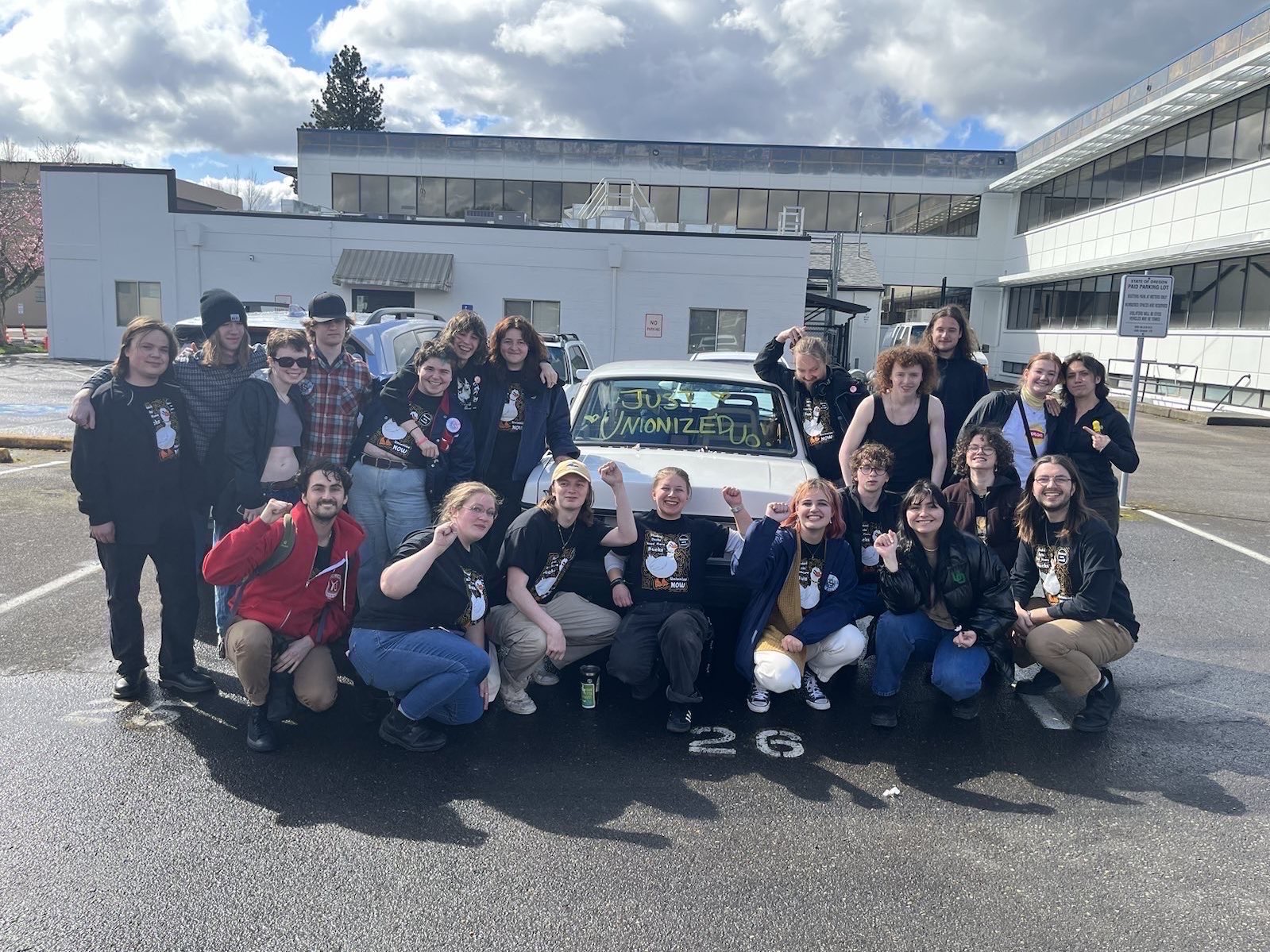
How can you help form this union? If you are a student worker, and have not yet signed a union card, do so! They can be found in EMU room 006c, a UOSW table, or even a coffee stand! You can also get one by contacting a union organizer. Once you have signed the card, you can turn it in again at EMU room 006c, a UOSW table, or by reaching out to organizers on social media or in person (unfortunately the coffee stands do not take signed union cards). The deadline is Friday, April 7th, at noon. Be sure to turn yours in as soon as possible! We are so close, all we need is one last push, and we can all make history. I implore you, not as some faceless journalist but as your fellow comrade and student worker, please go sign a union card. If we can do this, if we can get our union, the sky’s the limit.
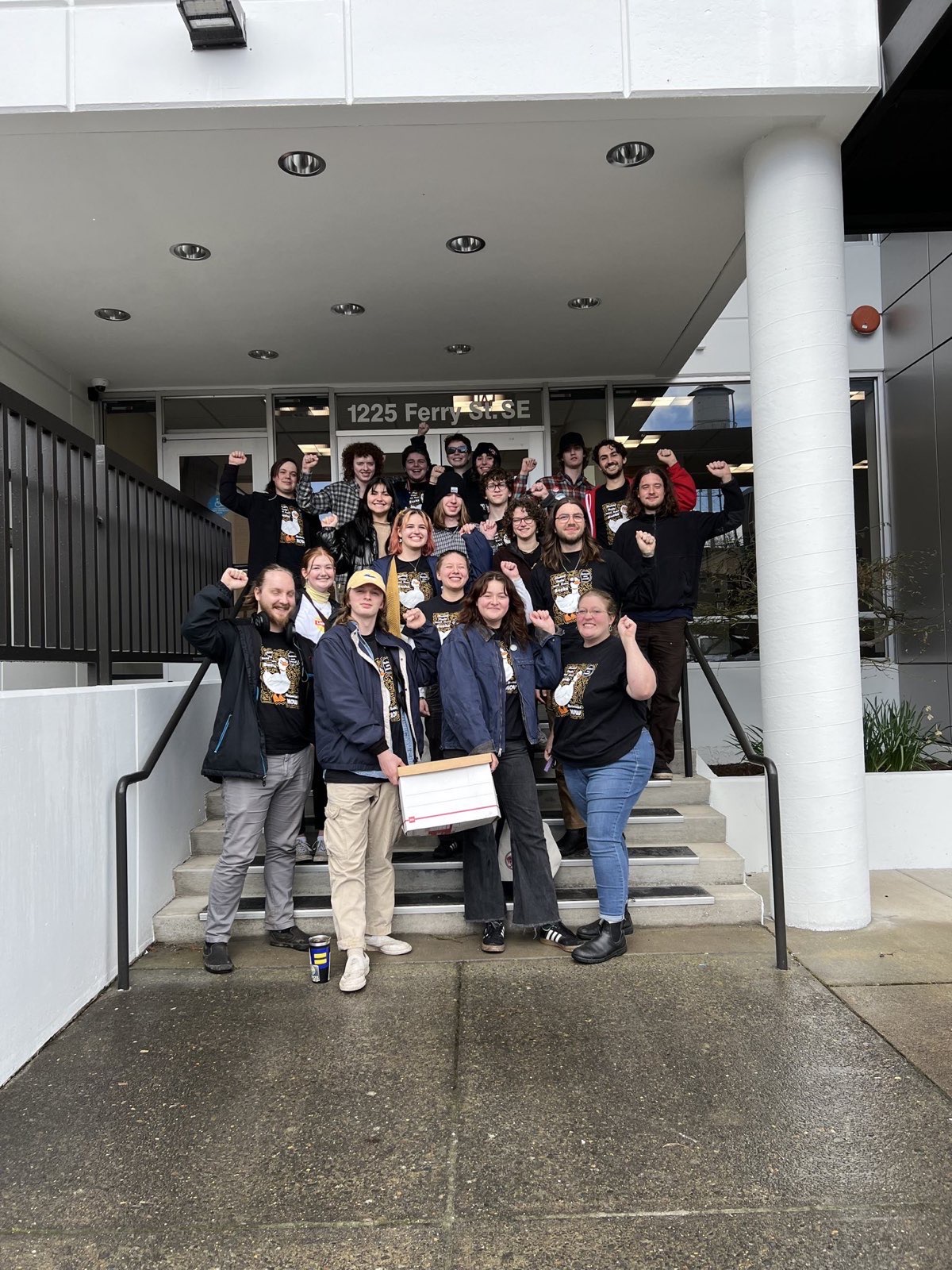
“No more the drudge and idler—ten that toil where one reposes— But a sharing of life’s glories: Bread and Roses, Bread and Roses”. — James Oppenheim, 1911